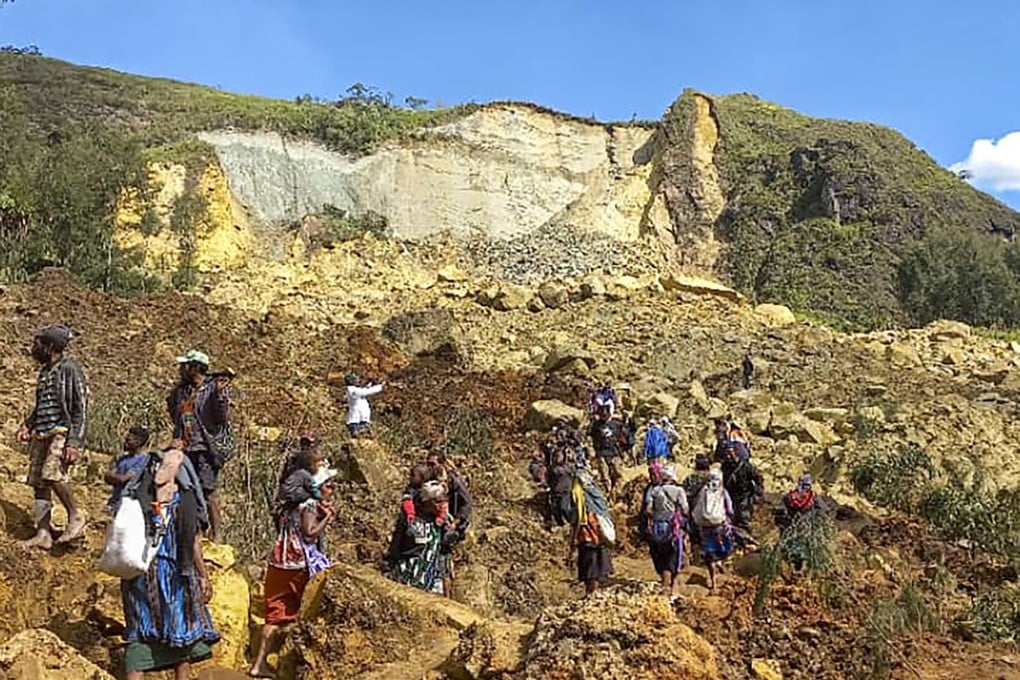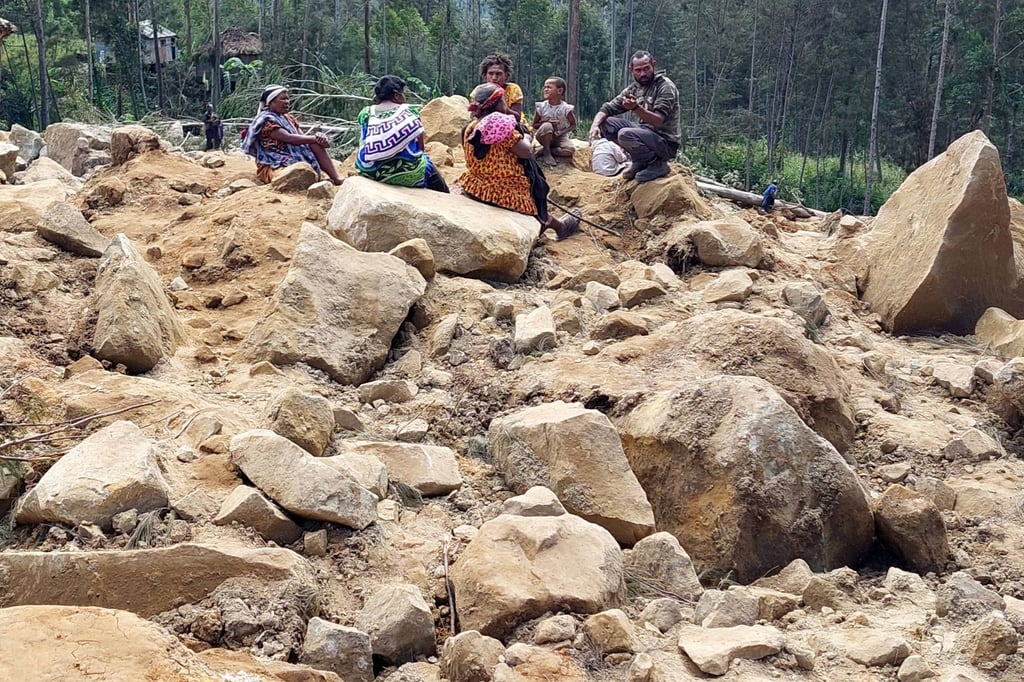Over 2,000 buried alive in massive landslide, Papua New Guinea tells UN
- Monday’s update came as overnight rains in PNG’s mountainous interior raised fears that the landslide’s debris could become dangerously unstable
- The numbers of those buried in Friday’s landslide around Yambali village in the country’s north are based on estimates from local authorities

More than 2,000 people were buried alive by a massive landslide in Papua New Guinea last week, the national disaster centre said on Monday, as treacherous terrain and the difficulty of getting aid to the site raises the risk few survivors will be found.
The variance reflects the remote site and the difficulty getting an accurate population estimate. PNG’s last credible census was in 2000 and many people live in isolated mountainous villages.
The landslide crashed through Yambali village in the country’s north at around 3am on Friday while most of the community slept. More than 150 houses were buried beneath debris almost two stories high. Rescuers told local media they heard screams from beneath the earth.

“I have 18 of my family members being buried under the debris and soil that I am standing on, and a lot more family members in the village I cannot count,” Evit Kambu said. “But I cannot retrieve the bodies, so I am standing here helplessly.”